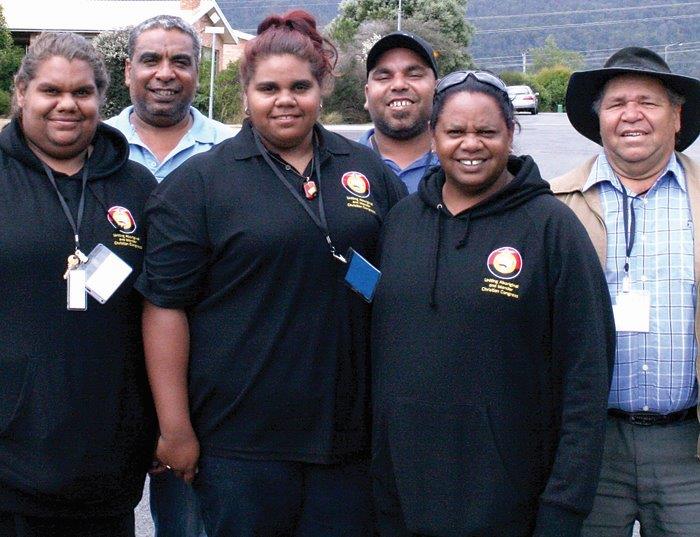The high rate of indigenous incarceration Australia-wide, the availability of adequate education and employment opportunities, threats to remove services from remote West Australian communities and the covenanting relationship with the wider church were among the topics discussed last month at the week-long Uniting Aboriginal and Islander Christian Congress’ 2015 National Conference.
More than 150 people from every corner of the nation descended on Poatina, a small former Hydro village in Tasmania’s north, for the gathering. Daily business sessions were accompanied by Bible teachings and workshops under the theme Holy Mountains, Healing People. Among attendees were participants in the 2015 About FACE program. About FACE stands for Faith And Cultural Exchange and has been an activity of the Uniting Church in Australia since 1984 with the aim of building meaningful relationships with Uniting Aboriginal and Islander Christian Congress (UAICC) communities.
UAICC acting chairperson Dennis Corowa, from Queensland, said the conference had come at an important time for the organisation following a recent change of direction. “It is a rally gathering… a meeting for the whole of Congress and an opportunity to offer encouragement,” Dennis said.
Dennis – also the chair of the Calvary Presbytery in North Queensland and was appointed UAICC chairperson at the gathering – said while the organisation drew much of its strength from its regional groups, coming together as a whole was important in setting a nationwide direction for the organisation.
“It is important because we are few in number, but share similar problems (and concerns),” he said. “This meeting is an opportunity to support one another in the spirit of sharing the pain.”
Dennis said the conversations at the conference would guide the issues Congress would seek to canvas at the National Assembly, in Perth, in July. He said it was concerning that 50 per cent of those imprisoned in Western Australia were Aboriginal, even though Indigenous people made-up only about 19 per cent of the population. He suspected that the level of incarceration would be similar in North Queensland and the Northern Territory.
“It is a big issue. Why are there so many (Aboriginal people) in prison?”
Dennis said it was very concerning that many Aboriginal people over the last two generations had missed out on the benefits offered by the education system and it was a problem which the Aboriginal community needed to take some responsibility for allowing.
“We have had the issue of not preparing our people to be ready for education and training,” he said.
Dennis said it was important that as Indigenous people connected with the education system they could see reward for their efforts in the form of sustainable employment. He said pilot programs such as several in Townsville had been effective in linking educational attainment with positive employment outcomes. Dennis said the covenanting relationship remained important to Congress and the strength of the preamble added to the church’s constitution in supporting the relationship between the ‘black’ and ‘white’ church, could not be underplayed.
But, while the UAICC understood its importance, Dennis doubted there was much engagement with it from most non-indigenous congregations. He said there was a desire from Congress to see a greater engagement with the document, a view he believed had the support of the church’s leadership. He said the Covenant was the conscience between the Aboriginal and non-Aboriginal arms of the church. Dennis said it was also important that attendees had the opportunity to receive some theological guidance from Congress members, as well as discussing social issues.
Nigel Tapp
Image: WA Congress delegates at the UAICC National Conference. Back (from left) Lenny Yarran, Perth; Des Lawson, Perth and Robert Jetta, Waroona. Front (from left) Adrianna Walsh, Shonae Garlett adn Cheryl Lawson.
